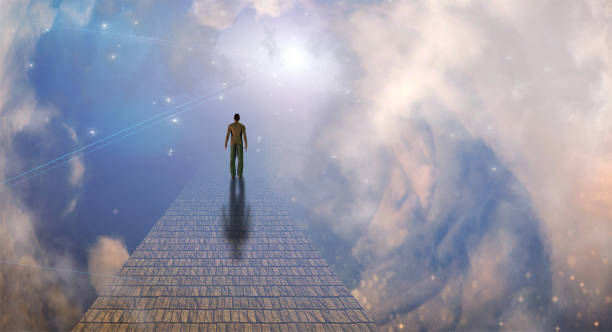
The Peace Column of the Catholic Peace Weekly gives the readers a mediation on God's time.
Korean Catholics celebrate the New Year three times each year. The first comes at the beginning of the liturgical year, the first Sunday of Advent. The second is the solar New Year on January 1 with the change of the calendar year and the third and final is Jan. 22nd of the Lunar New Year (Word of God Sunday). The Word of God contained in the Bible is the mirror and compass of our daily life. Celebrating, reflecting on, and disseminating that word is God's blessing to us.
The last of the new years contains the desire to expect changes through introspection. Advent is a new year for believers who are waiting for Jesus, and it is a time to dream of hope for the future. The Gregorian New Year and the Lunar New Year are times to renew our daily lives and design new lives and challenges. At the time of the new year, everyone has a question to ask themselves. Who am I and where did I come from and where am I going? There is life and time is given, but the path to take is always a worry.
Time is invisible. It just flows without stopping with the second, minute, and hour hand. However, this is a set calendar time. Chronos is physical time measured as a quantity. The relative time we feel as quality is Kairos. If Chronos is objective time that applies to everyone, Kairos is subjective time that has different meanings to people. In the end, we entrust ourselves to the flow of time, divide it into the past, present, and future, and always stay awake and prepared according to the word of the Lord. The place where the past flows and the future begins is 'today' the 'now' moment.
Human beings divide time according to its flow, and they are created and end their earthly life regardless of their will, but God, the Creator, has neither creation nor extinction, neither the past nor the future. His own time neither comes nor goes, but exists only in the eternal present, always now. A moment is also an eternity, and eternity is also a moment. "For a thousand years in your sight are as yesterday, now that it is past, or as a watch of the night" (Psalm 90:4). "All our days have passed away in your indignation; we have spent our years like a sigh" (Psalm 90:9). "Seventy is the sum of our years, or eighty, if we are strong. And most of them are fruitless toil, for they pass quickly and we drift away" (Psalm 90:10).
The time given to us always accompanies space. In the exhortation 「The Joy of the Gospel」, Pope Francis defines time as "the expression of the horizon that is always open before us", but space as "the limits of living in a limited reality (space)". "Giving priority to space means madly attempting to keep everything together in the present, trying to possess all the spaces of power and of self-assertion; it is to crystallize processes and presume to hold them back. Giving priority to time means being concerned about initiating processes rather than possessing spaces. Time governs spaces, illumines them and makes them links in a constantly expanding chain, with no possibility of return. What we need, then, is to give priority to actions which generate new processes in society and engage other persons and groups who can develop them to the point where they bear fruit in significant historical events." (223), so the Pope says "time is greater than space".
We are always busy. Tired of this and that, and moaning over achievements and goals. The lunar New Year was the third New Year. You don't have to be impatient, torture yourself, or give up because your resolutions that you made before the Lord didn't last a month or even three days. Save the memories of the past, but don't cling to them, and there is no need to be afraid of the uncertain future. Let's hope again, promise again, and challenge again. God's time is always 'today'. You have to live today. To live faithfully today getting up after your falls and recovering. It is the way to repay the grace of the Lord who gave us 'today'.